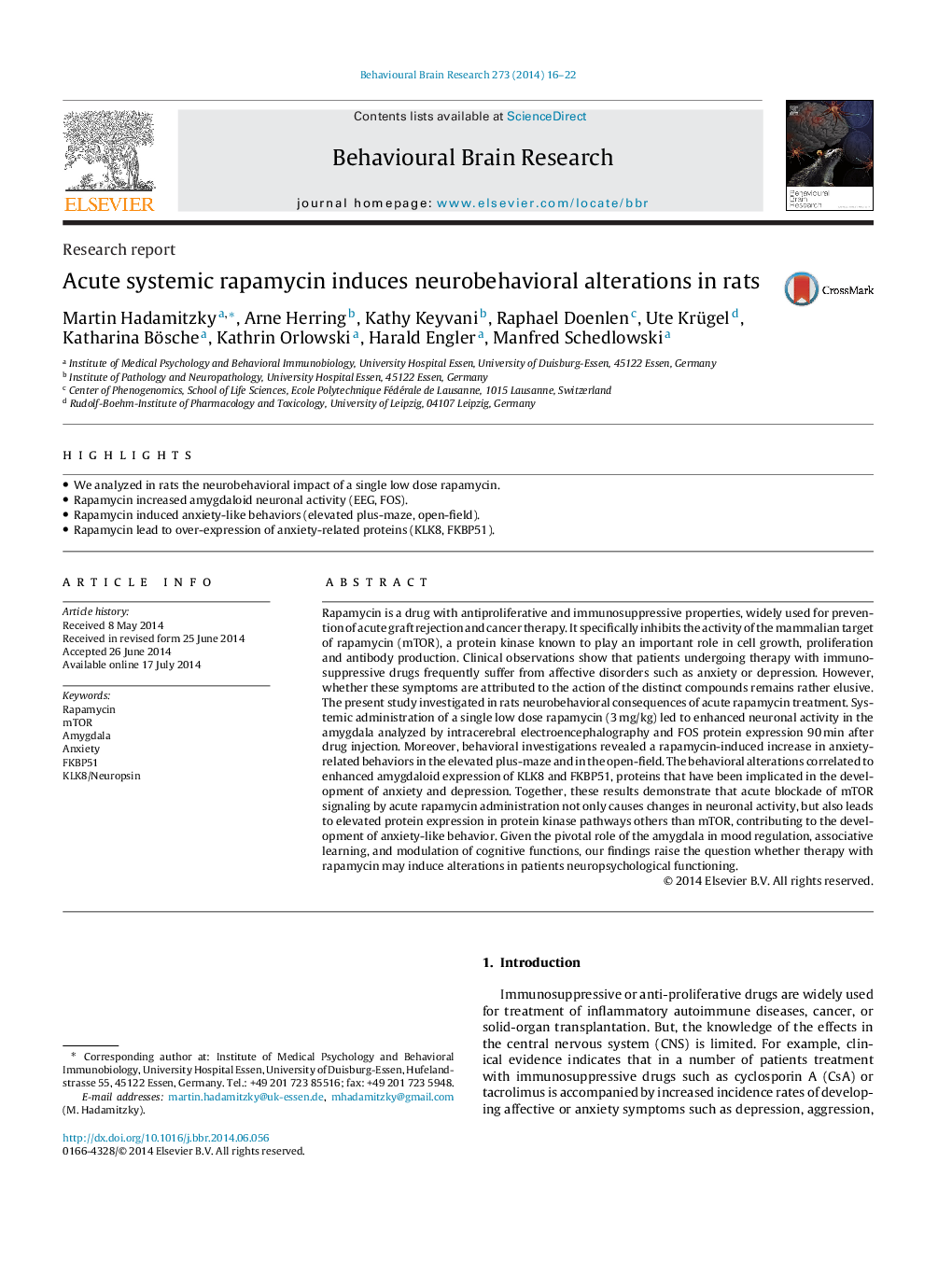| کد مقاله | کد نشریه | سال انتشار | مقاله انگلیسی | نسخه تمام متن |
|---|---|---|---|---|
| 4312500 | 1612959 | 2014 | 7 صفحه PDF | دانلود رایگان |
• We analyzed in rats the neurobehavioral impact of a single low dose rapamycin.
• Rapamycin increased amygdaloid neuronal activity (EEG, FOS).
• Rapamycin induced anxiety-like behaviors (elevated plus-maze, open-field).
• Rapamycin lead to over-expression of anxiety-related proteins (KLK8, FKBP51).
Rapamycin is a drug with antiproliferative and immunosuppressive properties, widely used for prevention of acute graft rejection and cancer therapy. It specifically inhibits the activity of the mammalian target of rapamycin (mTOR), a protein kinase known to play an important role in cell growth, proliferation and antibody production. Clinical observations show that patients undergoing therapy with immunosuppressive drugs frequently suffer from affective disorders such as anxiety or depression. However, whether these symptoms are attributed to the action of the distinct compounds remains rather elusive. The present study investigated in rats neurobehavioral consequences of acute rapamycin treatment. Systemic administration of a single low dose rapamycin (3 mg/kg) led to enhanced neuronal activity in the amygdala analyzed by intracerebral electroencephalography and FOS protein expression 90 min after drug injection. Moreover, behavioral investigations revealed a rapamycin-induced increase in anxiety-related behaviors in the elevated plus-maze and in the open-field. The behavioral alterations correlated to enhanced amygdaloid expression of KLK8 and FKBP51, proteins that have been implicated in the development of anxiety and depression. Together, these results demonstrate that acute blockade of mTOR signaling by acute rapamycin administration not only causes changes in neuronal activity, but also leads to elevated protein expression in protein kinase pathways others than mTOR, contributing to the development of anxiety-like behavior. Given the pivotal role of the amygdala in mood regulation, associative learning, and modulation of cognitive functions, our findings raise the question whether therapy with rapamycin may induce alterations in patients neuropsychological functioning.
Journal: Behavioural Brain Research - Volume 273, 15 October 2014, Pages 16–22
